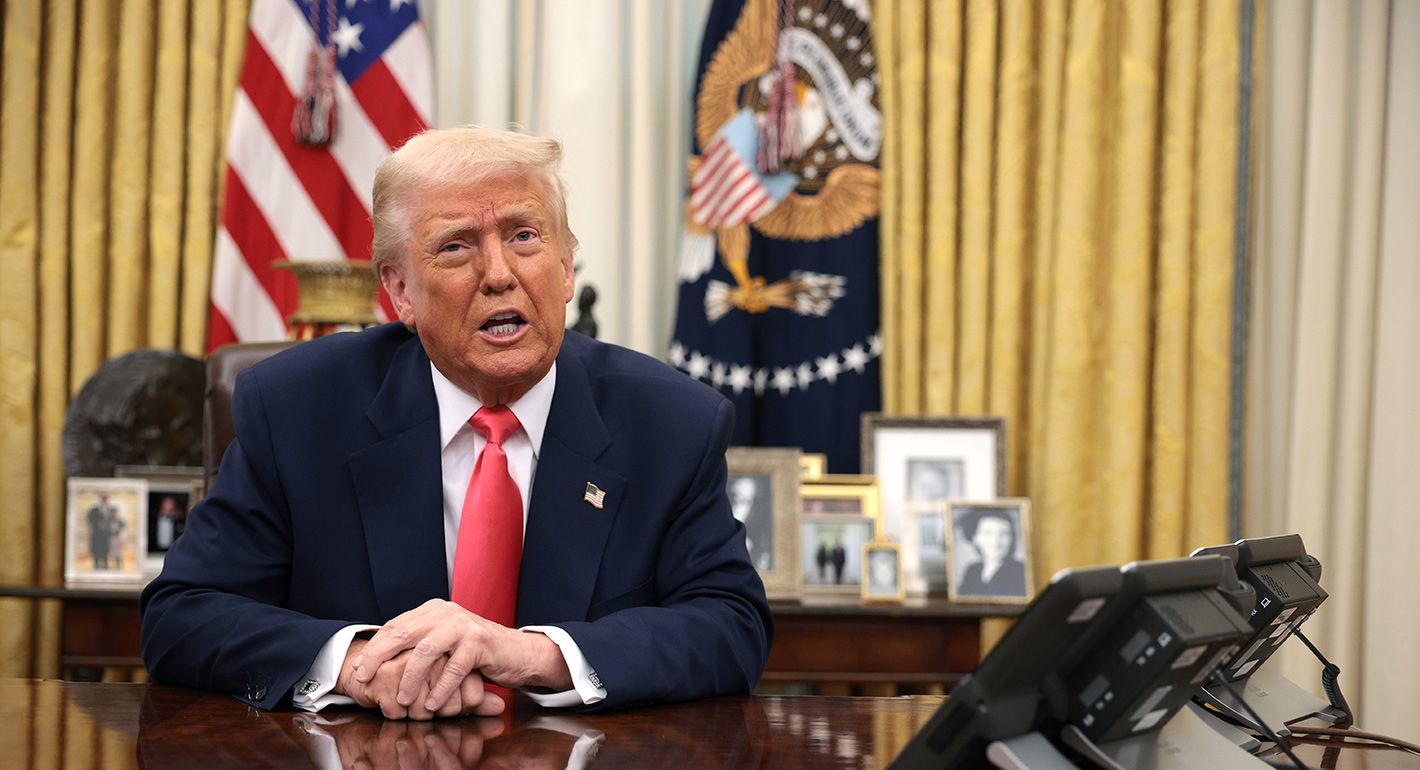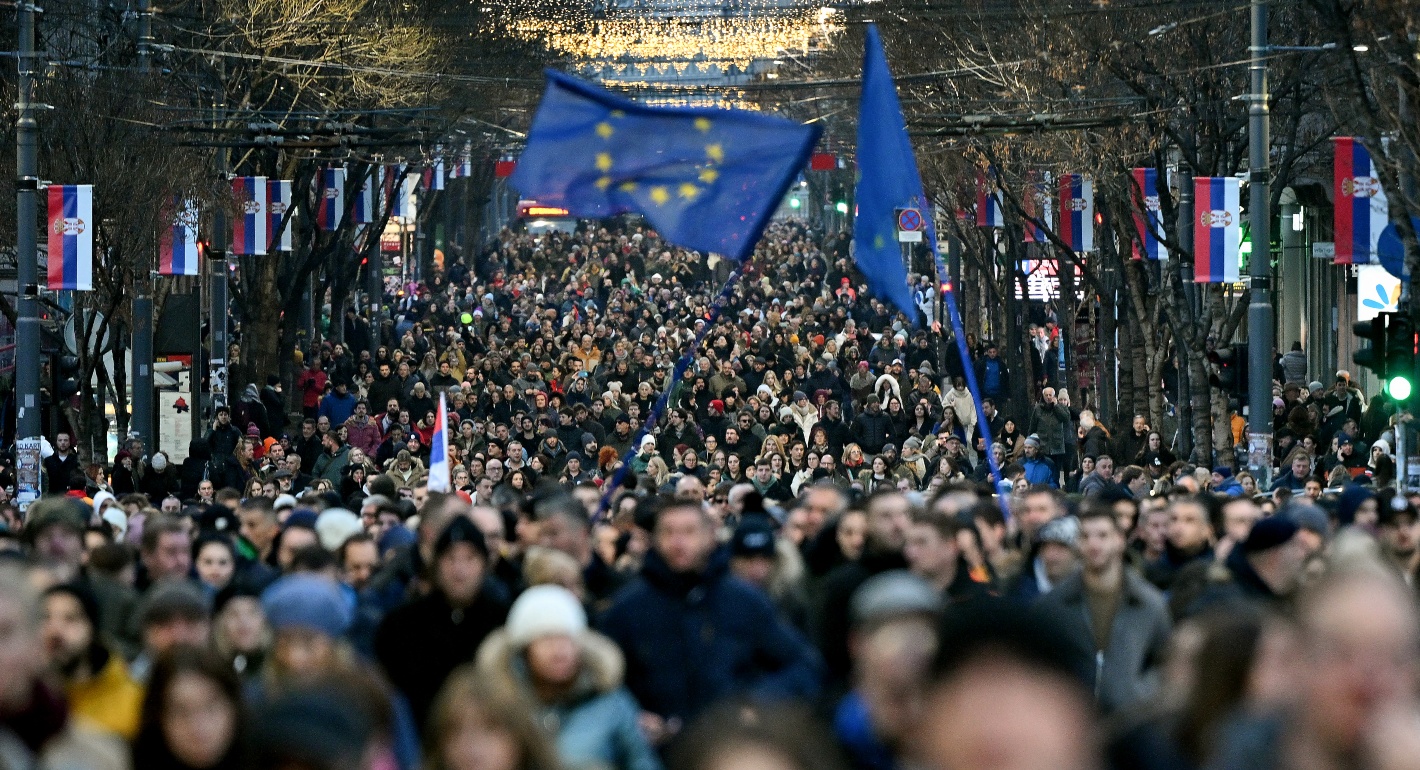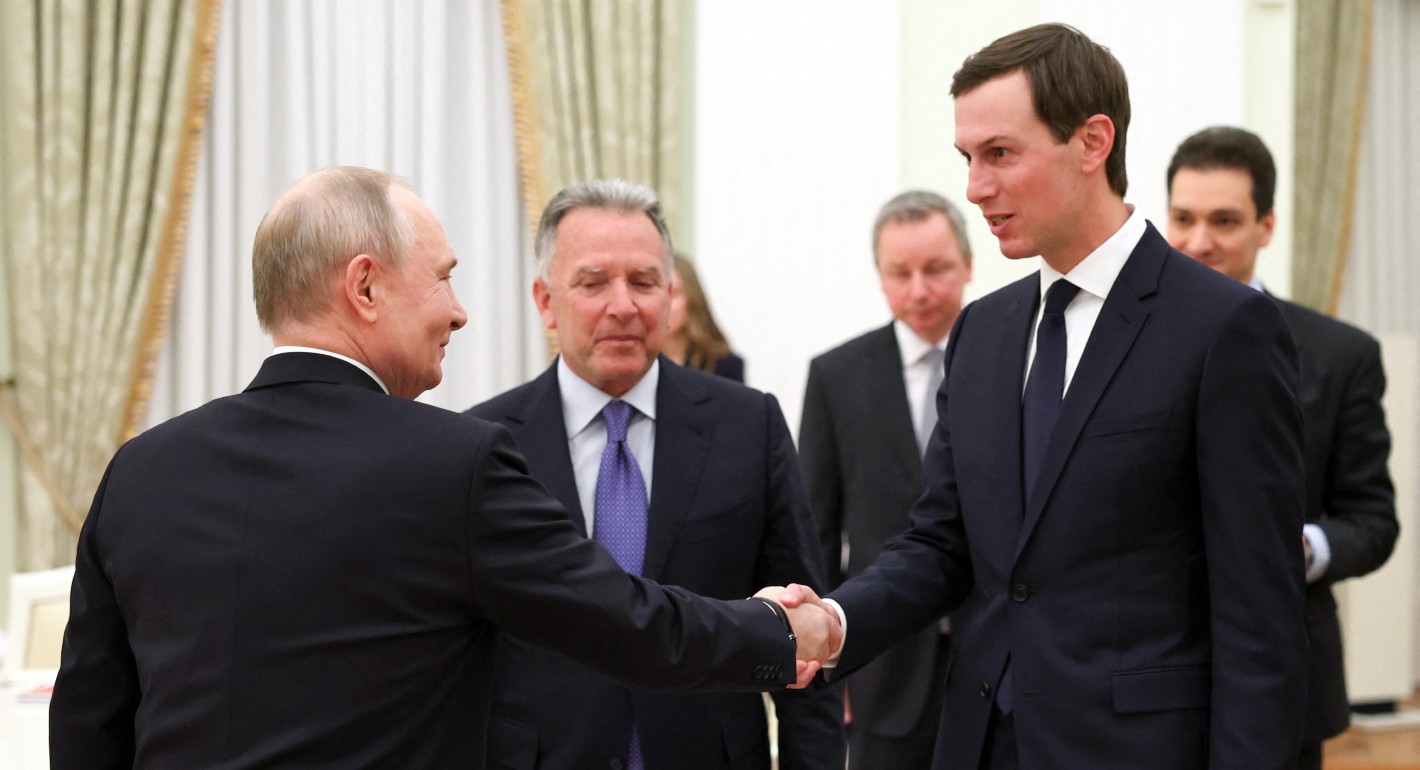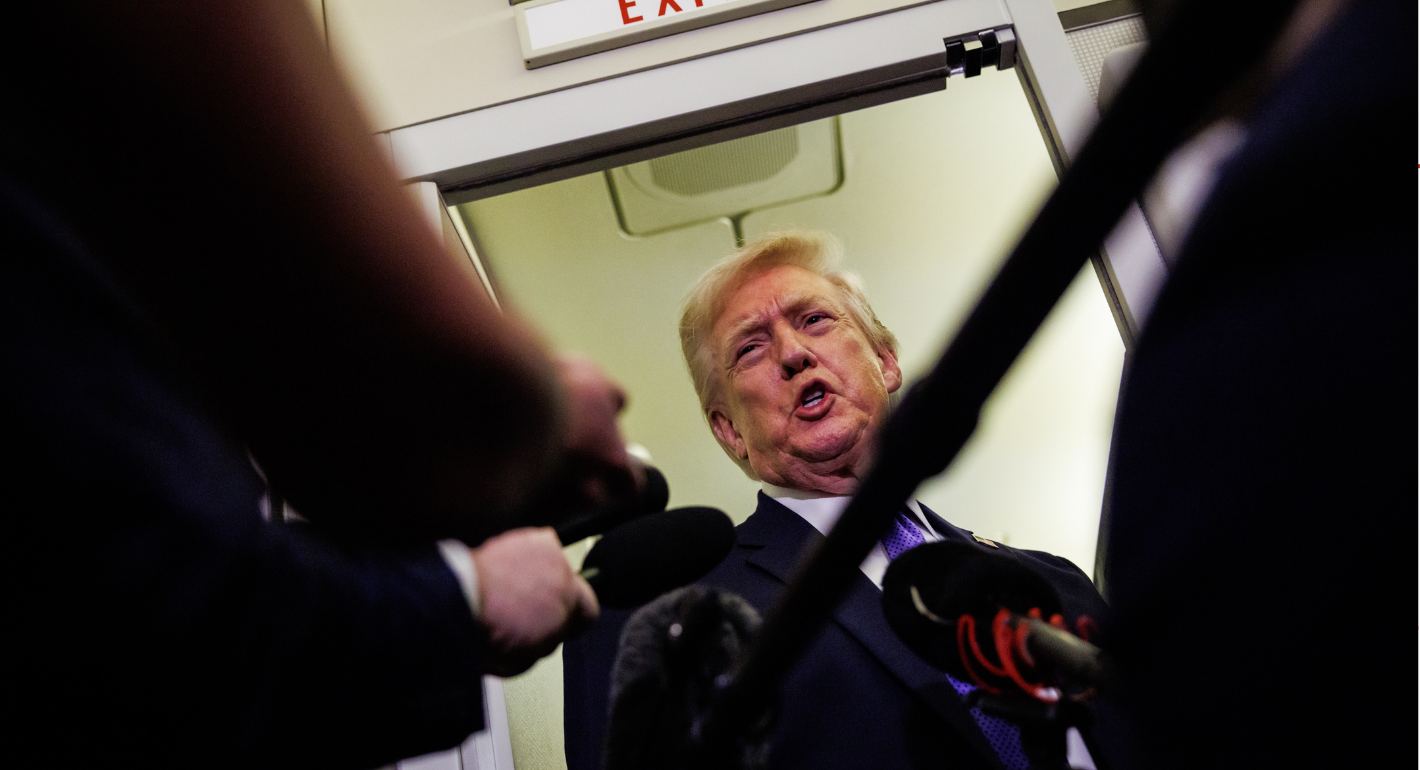This interview was originally published in Danish by RÆSON on March 12, 2025, and appears here in English translation.
Interview by August Østergaard Nilsson
RÆSON: How is U.S. foreign policy today different from both Joe Biden’s and Trump’s first term foreign policy?
WERTHEIM: We have to consider both the fundamental terms and the tactical terms.
In fundamental terms, Trump, in his first term, pursued a foreign policy that turned out to be quite similar to the foreign policy of his predecessors in the post-Cold War era. I would characterize that foreign policy as centering on the pursuit of U.S. global military primacy. This involves the United States trying to be the dominant military power and security provider, not only in the Western Hemisphere, but also in every region that Washington deems as having strategic significance, namely Asia, Europe, and the Middle East.
With respect to Europe, Trump offered a meaner and louder version of Obama’s foreign policy: asking European allies to do more and focusing on burden sharing. But ultimately Trump proved unwilling to abandon Europe, and unwilling even to pull U.S. troops out of Europe. This meant that Europe did not have the incentive to replace U.S. defense responsibilities and capabilities with European ones.
Joe Biden pursued a foreign policy of primacy more enthusiastically and with the customary trappings of liberal internationalism around it. He described NATO as a “sacred obligation” and led the alliance in providing aid to Ukraine, although he ruled out the direct use of military force against Russia in the conflict.
But we are now seeing a different Trump—a Trump that has gotten fed up with the U.S. playing the dominant role as Europe’s security provider, a Trump who’s much more interested in seeing peace in Ukraine than providing for Ukraine’s security, and a Trump who is potentially more open to making deals that he never made in his first term with the other major powers in the world, namely Russia and China.
We should not assume he will succeed on that intention, if indeed that is his intention, which is also not entirely clear, particularly with respect to China.
So we’re now seeing something that could amount to a shift in American grand strategy: It’s a shift that’s been talked about for a long time, going back to the Obama administration with the “pivot to Asia” policy. Under Trump, it may mostly involve U.S. retrenchment from Europe and not necessarily from the Middle East. But that appears to be the direction of travel for the Trump administration.
I am also paying attention to the tactical boldness that Trump has displayed in his opening weeks and months. This too is new.
Trump is now willing to make threats and throw out seemingly unrealizable ideas with a degree of seriousness that leaves everybody wondering. Some of Trump’s threats, like to take over the Panama Canal or annex Greenland, correspond to his MAGA politics and resonate with his base. That still doesn’t make them ends for which Trump has willed the means.
Other threats, like making Canada the 51st state, seem to be half a joke. The Gaza threat is more puzzling because the idea of nation building in the Middle East—in Gaza, no less—seems anathema to Trump’s own base.
Nevertheless, when it comes to any dimension of foreign policy, including economic statecraft, we are now dealing with a Trump who is emboldened, who is willing to float big ideas and see how they land.
Is Donald Trump’s foreign policy merely a response to a world where the unipolar moment has vanished, and we’ve returned to the reality of great power rivalry? Or can the shift in America’s foreign policy be ascribed to the person, Donald Trump?
Both are happening at once. That’s what makes interpreting this moment difficult. Many people are inclined to fixate on the person of Donald Trump. That is, of course, what Donald Trump wants you to do. And we can’t look away, exactly, because Trump does inject unique performative elements into foreign policy that may have real consequences.
However, the more fundamental aspect is very important, and it goes beyond Trump. Ever since the Obama administration, American administrations and analysts have tried to grapple with the loss of American unipolarity and figure out what to do.
Change has been slow and, in my view, insufficient. But even if Trump had never entered the American political scene, the United States was going to have to confront the fact that during its unipolar moment, it made more defense commitments than ever before in its history, after retaining all the commitments accumulated during the Cold War. And it made those commitments while thinking, essentially, that they would never come due –that that would be some other President’s or generation’s problem to deal with. Well, here we are. That’s us.
The idea that the United States was truly committed to fighting Russian military forces over, say, the Baltic states is simply belied by the historical record of what American policymakers and Senators were saying when the United States made those commitments in the first place. They believed that by expanding NATO, the United States would not have to confront the possibility of defending the countries that it had nominally obligated itself to defend. American political leaders did not, unfortunately, make a serious attempt to ask: “does this country really think that its vital interests, its security and prosperity, are bound up with the sovereign existence of every new member of NATO?”
This problem of overcommitment was bound to come due. Joe Biden, at the beginning of his term, spoke of a foreign policy for the middle class; he tried to put the Russia problem off to the side; and his administration even considered reducing the U.S. military footprint in the Middle East beyond withdrawing U.S. forces from Afghanistan.
Those moves did not come to pass. So the structural problem looms large.
Although Ukraine is not a part of NATO, it seems that Trump’s stance in the conflict has planted a doubt in many European leaders’ minds as to what extent they can trust the security guarantees enshrined in NATO. Is this a legitimate doubt?
That’s a legitimate doubt.
I wrote in the Financial Times prior to Trump’s inauguration that although Europeans think that the United States has been the security guarantor of Europe for eight decades, that’s not quite true.
In the post-Cold War era, yes, the United States recommitted to European security, but in an environment in which it believed that there were no significant external threats to defend against. Moreover, NATO expanded to include countries across Eastern Europe. The United States has not manifested the will to fight a high-intensity war for the sake of countries in Eastern Europe for eighty years. The United States has, in fact, never manifested that will. It did fight for and guarantee the security of countries in Western Europe from World War II through the Cold War, but those countries are unlikely to be threatened with invasion anytime soon—and 35 years have passed since the Cold War ended.
So European leaders should be doubting the American commitment to come to the rescue should the worst happen in Eastern Europe today. They should have doubted it under the Biden administration and well before that.
I suppose the security guarantees in NATO are by and large built on trust: Trust that primarily America will stand if Article 5 is activated. Can NATO uphold itself if this doubt has taken root?
NATO needs to change to survive. The reckoning that is currently occurring should have happened in a more gradual, responsible and consensual way well before the second Trump administration.
Article 5 does not obligate any NATO member to wage war on behalf of other members. In fact, a requirement to do just that was removed from the text of Article 5 at the founding of NATO. And U.S. policymakers of both political parties are well aware of what the literal text requires.
It was not obvious under Obama or Biden that the United States would have waged a direct, large-scale war against Russia to defend, for example, the Baltic states. Either administration could have argued that it was upholding its Article 5 obligation by pursuing, for example, a Ukraine-like model of sending supplies and letting others do the fighting.
In short, nobody should think that Trump, or his successor, would necessarily fight Russian forces to preserve every inch of NATO territory. It might happen, but it’s something that I would not count on.
Europeans themselves should prepare to defend their own territory. And to the extent the United States might be able and willing in such a contingency to contribute in direct or indirect ways, so much the better. Europe should welcome that. I don’t think we need to have a transatlantic divorce. But to depend on the United States would be a mistake.
So, you say that it’s never been clear that NATO and the Article 5 would actually guarantee deterrence. But at the same time, you’re saying that NATO needs to change in order to survive. How should NATO change?
Deterrence is never automatic. It can fail. But the fundamental principle here is that Europe has a greater interest in defending Europe than the United States does. And that is a point that the President of the United States makes over and over again when he refers to the ocean that separates the United States from the European continent.
The solution is for European countries to replace U.S. responsibilities and capabilities for defending Europe. The United States would remove most of its conventional capabilities, its troops and its military assets, from the European theater. Preferably, this would happen in a coordinated fashion—it can’t happen overnight.
Europe needs to build capabilities, and it needs to develop forces that are ready to fight and can be sustained. That ought to happen over a period of years, perhaps a decade. Even then, I would like the United States to shift to a supporting role in the alliance, not leave the alliance altogether.
Unfortunately, it now looks like this shift could happen more suddenly and drastically than I would like, although I don’t think that’s inevitable at this point.
Trump has not manifested a clear intention to abandon Europe. Even recently, he’s talked about maintaining a significant U.S. military presence in Poland, which is important. So it’s possible—if we avoid worst casing as well as wish casting—for the transatlantic alliance to essentially renegotiate terms, establish a division of labor, and move toward a future in which Europe is not disconnected from the United States but is not dependent on it either.
Do you think that Europe and the United States continue to share this set of common security interests necessary for upholding the alliance?
We have important interests in common, yes. The United States would be impacted by widespread instability in Europe. Transatlantic coordination on trade, technology, and energy remains valuable. But it will take a great deal of work, on both sides of the Atlantic, to allow shared interests to return to the forefront of the alliance again.













